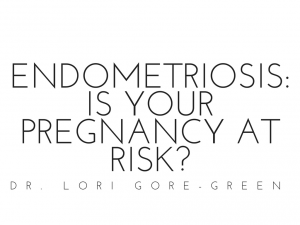 Findings of a recently released study of 15,000 women suggest that women with endometriosis had a greater chance of suffering from serious complications throughout the duration of their pregnancy as compared to women without the condition. These complications also increased the chance of ectopic pregnancy, miscarriage and premature birth.
Findings of a recently released study of 15,000 women suggest that women with endometriosis had a greater chance of suffering from serious complications throughout the duration of their pregnancy as compared to women without the condition. These complications also increased the chance of ectopic pregnancy, miscarriage and premature birth.
Endometriosis is a medical condition wherein the uterine lining or the “endometrium” grows in other places like the fallopian tubes, ovaries, vagina or pelvis. Over time, this lining builds up and can cause cysts, heavy periods, severe cramping and possibly infertility. Approximately 5 million women in the US alone have this condition, though the true number is unknown, as it may go undetected.
However, there are certain symptoms that some patients with the condition tend to share.
Pain, both acute and chronic tend to be a marker of endometriosis, for some. Painful menstrual cramps that worsen over time are a commonly shared symptom of the affliction as is chronic pain of the lower back and pelvis.Pain during or after sexual intercourse that is often described as a “deep pain” is often a common symptom of endometriosis. Intestinal pain can be a symptom, as can painful bowel movements. Stomach and digestive problems resulting in diarrhea, constipation, bloating and/or nausea – particularly during menstrual periods can be a symptom of the condition. Painful urination – particularly during menstrual periods is another symptom of endometriosis. In rare cases, blood found in stool or urine can indicate the condition. Bleeding and spotting in-between periods can also be a symptom, as can infertility. If you are someone you know suffers from any of these symptoms, see a doctor as it may be a symptom of another endometriosis or another condition.
The findings of the recently published longitudinal study on endometriosis, though important, are not wholly surprising as endometriosis is associated with both structural and functional changes in the endometrium and the uterus. Researchers discovered that this condition increased the odds of a miscarriage by 76 percent, the risk of premature birth by 26 percent and the incidence of needing a caesarean section by 40 percent. The chances of sustaining an ectopic pregnancy (this is where the fetus develops outside of the womb) nearly tripled.
This study was based in Scotland and a longitudinal study conducted from 1981 to 2010 with a mix of women who had and did not have endometriosis. Although infertility is a known side effect of endometriosis, this newly collected data will hopefully return the focus to antenatal care particularly for pregnant patients with endometriosis.